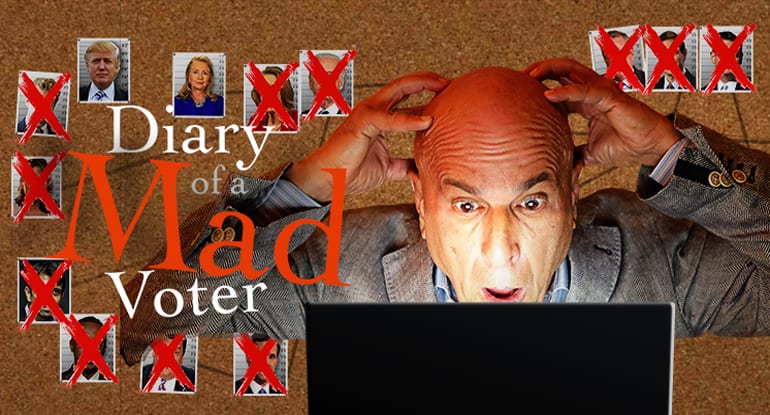LAW PROFESSORS GRAPPLE WITH TRUMP:
When it comes to Donald Trump, University of Texas law professor Sanford Levinson doesn’t shy away from using the s-word or even the c-word.
Secession. Coup. The United States would not be immune to such political upheavals with Mr. Trump occupying the White House, says Prof. Levinson.
Among the nation’s most prominent constitutional scholars, Prof. Levinson says a coup d’état would be very unlikely — a one in 1,000 chance, he estimated — but not impossible should a Trump administration display a “dangerous militaristic adventurism.”
And a coup, Prof. Levinson said, “is not something I’m advocating except under the worst case.”
The notion of a liberal state like California splitting from the republic seems more plausible to him. Why should a state like California “remain a member of this union when the president is a raving narcissist that some describe as a sociopath?” he said.
In this extraordinary election season, law professors and constitutional scholars are venturing into extraordinary realms of discourse.
Every election now, somebody’s talking about secession. But at least this is good publicity for my paper on coups in America.
And — because I’ve been way ahead of the curve on this — here are some thoughts on secession:
People also talk about secession for more serious reasons. They feel that the central government doesn’t respect them, forces them to live under laws they find repugnant and takes their money away to pay off its own supporters. You see secession movements based on these principles in places like Scotland, Catalonia, Northern Italy, and elsewhere around the world. Some might succeed; others are less likely to. But in every case they represent unhappiness with the status quo.
America has an unfortunate history with secession, which led to the bloodiest war in our history and divisions that persist to this day. But, in general, the causes of secession are pretty standard around the world: Too much power in the central government, too much resentment in the unhappy provinces. (Think Hunger Games).
So what’s a solution? Let the central government do the things that only central governments can do — national defense, regulation of trade to keep the provinces from engaging in economic warfare with one another, protection of basic civil rights — and then let the provinces go their own way in most other issues. Don’t like the way things are run where you are? Move to a province that’s more to your taste. Meanwhile, approaches that work in individual provinces can, after some experimentation, be adopted by the central government, thus lowering the risk of adopting untested policies at the national level. You get the benefits of secession without seceding.
Sound good? It should. It’s called federalism, and it’s the approach chosen by the United States when it adopted the Constitution in 1789. As James Madison wrote in Federalist No. 45, “The powers delegated by the proposed Constitution to the federal government, are few and defined. Those which are to remain in the State governments are numerous and indefinite. The former will be exercised principally on external objects, as war, peace, negotiation, and foreign commerce; with which last the power of taxation will, for the most part, be connected. The powers reserved to the several States will extend to all the objects which, in the ordinary course of affairs, concern the lives, liberties, and properties of the people, and the internal order, improvement, and prosperity of the State.”
It’s a nice plan. Beats secession. Maybe we should give it another try.
Hey, it’s an idea so crazy it just might work.
UPDATE: From a friend on Facebook: “Relax. Four years ago, Romney was Hitler too.”


